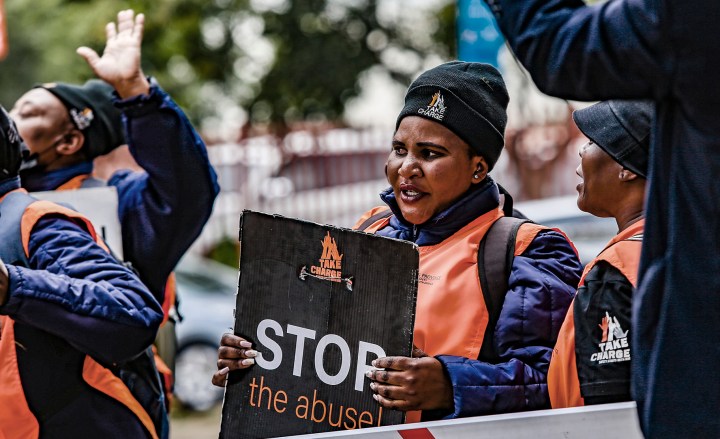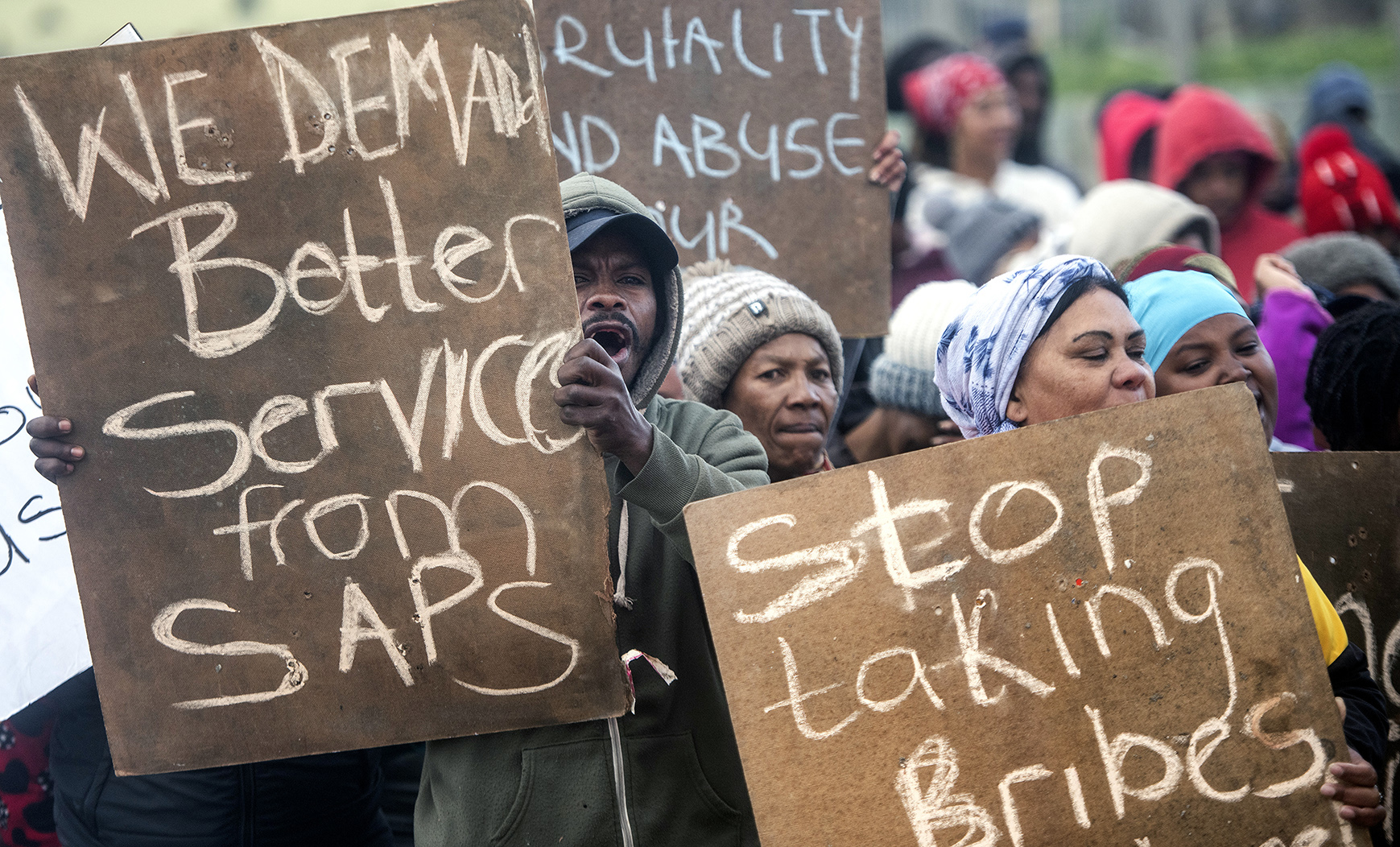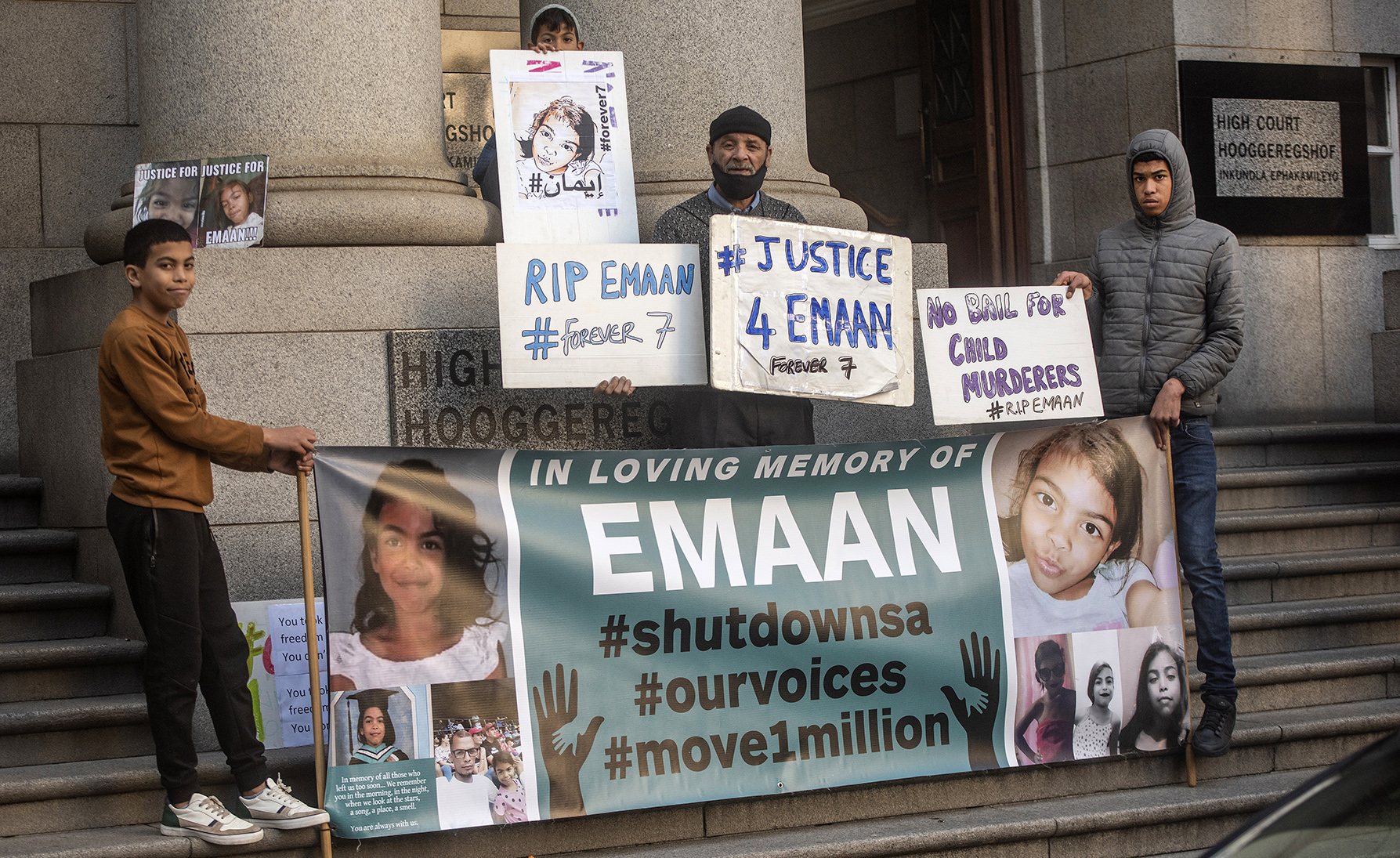TUESDAY EDITORIAL
Violent crime is soaring in South Africa and retribution isn’t working – it’s time for restorative justice

South Africa knows violence very well. The majority was violently oppressed by the apartheid government, with a struggle for freedom, characterised by petrol bombs and necklacing and a contested birthing of democracy where people were regularly thrown off moving trains and massacred with pangas. Today, stray bullets hit unintended targets during gang violence, service delivery protests are met with often fatal responses from the police and gender-based violence is rife.
According to the World Population Review South Africa ranks ninth in the world when it comes to murder, fourth for rape and ninth for robberies. Countries in conflict areas such as Syria, Somalia and South Sudan have a lower murder rate than we do.
As we prepare to observe Women’s Month, the latest crime statistics show that contact crimes, including assault and sexual offences, jumped 15%, with violent crimes including murder, assault and sexual offences also recording double-digit growth. According to the South African Police Service, 6,083 people were murdered during the quarter (up 22%) – that’s 68 people a day – the highest number recorded over this period in the past five years. Attempted murders were up 25%, with the police tracking 5,717 cases. Sexual offences increased by 13.7%.
Norwegian sociologist Johan Galtung developed a theory to explain violence manifested in society:
- Direct (war, torture, fighting, gun violence, and physical and emotional abuse). South Africa would rank highly here, given our levels of murder and rape;
- Structural, as evidenced by unequal power relations as a result of unjust, repressive and oppressive political, economic and social structures that limit people’s access to things such as healthcare, education and employment opportunities; and
- Cultural, which often manifests as discrimination, racism, prejudice and sexism based on language, religion and specific ideologies.

The Take A Change NGO protests against gender-based violence and femicide outside the Palm Ridge Magistrates’ Court on 16 March 2022. (Photo: Gallo Images / OJ Koloti)
Of course, the violence we experience in disproportionately affects women, with high rates of femicide and sexual assualt. According to research by Oxfam, one in three women will experience physical or sexual violence in her lifetime – a worrying statistic. Much of this violence is attributed to harmful social beliefs such as that women are meant to be submissive and if not, men have a right to assert coercive control, the normalisation of sexual harassment and men’s entitlement to sex with a woman, and a man’s right to discipline a woman. South African Human Rights Commission research too has shown the prevalence of these attitudes and how they perpetuate violence against women.
The Institute for Security Studies (ISS) has called for a murder-reduction stategy and attributed the high murder rate to a “combination of factors such as socioeconomic deterioration, urbanisation, increased inequality, declining police performance and high levels of police corruption. A main driver of murder in many areas is the availability of illegal firearms, which is often interlinked with organised crime networks.”

Residents of Philippi in Cape Town march to their local police station to protest against crime, unemployment, power cuts and gender-based violence, among other things, on 13 July 2022. (Photo: Gallo Images / Brenton Geach)
The ISS has identified that South Africa’s murder rate is highest in the Eastern Cape, Western Cape and KwaZulu-Natal, and that in “39% of cases (where police could establish a motive), the cause could be attributed to arguments and misunderstandings, often between acquaintances or relatives. This is a testament to how normalised violence is in everyday life. The second-most common circumstance in which murders were committed was during a robbery (19%).

Emaan Solomons’s family protest outside Cape Town High Court on 1 August 2022. Emaan died after she was hit by a stray bullet while playing in front of her family home in 2020. (Photo: Gallo Images / Brenton Geach)
“Given the frustration levels in high-crime communities, it is not surprising that vigilantism was the third-most noted cause at 15%. Murders attributed to gangs, taxi conflict and illicit mining violence together made up 18%.”
Structurally and culturally driven
Under-resourced police services – the available number of policemen per community, vehicles not working and police stations being attacked – is an aggravating factor for the unabated violence. However, what these statistics show is that South Africa’s crime is structurally and culturally driven, so interventions other than punitive measures are required.
South Africa’s national crime-prevention strategy needs to focus on the social drivers of the high levels of violence we experience and look to alternative instruments of conflict resolution such as “restorative justice” and not just retributive measures, which are not working.

Emaan Solomons died after she was struck by a stray bullet outside her home in Ocean View, Cape Town on 27 February 2020. (Photo: Gallo Images / Brenton Geach)
Restorative justice emerged as a strategy in South Africa during the Truth and Reconciliation Commission (TRC), which dealt with the violent atrocities perpetrated by the apartheid government. According to experts, Mike Batley and Anneke Scheepers, restorative justice “aims to repair the harm caused by crime. When victims, offenders and community members meet to decide how to do that, the results can be transformational. Restorative justice emphasises accountability, making amends, and – if they are interested – facilitated meetings between victims, offenders and other persons.” Unfortunately, the TRC process was arrested and so was the strategy. Now would be a time to review it.
Our societal conditioning and thinking need to be adjusted to undo the damage that our culture of violence is sowing. We need to all agree on the shared values we would like to ascribe to and how we work collectively towards that or face another groundhog day when the police minister updates us on our crime statistics. DM/MC




















 Become an Insider
Become an Insider
I might be missing something here, but as a youngster growing up in apartheid, I never saw any violence. We didn’t live in fear and we certainly never needed any meetings to discuss our conditioning or needs for adjustment to suit our neighbor’s culture of violence.
I never even saw police present in our neighborhoods. The streets were always clean. Everything worked, including electricity. We never had fences. I was conditioned from a young age to think that was normal. Apparently now, I need to work out how to agree on shared values with a very different society. I believe I would struggle with this concept. I guess I am just too old to understand the new normal. This tired old race horse hasn’t got the energy to start trying to understand what he has in common with a young zebra.
The sickening violent state of affairs is once again proof of total lack of governance and the immorality coming from the gutless mob in governing positions.
How did the so-called police force not know about the vile bastards mining illegally? Why were they not convicted years ago? Everybody else knew about them and their doings – the stolen goods, weapons and gold. The answer is simple – the police support them, the politicians support the useless police force and do not care what happens as long as they can line their filthy pockets.
We can stop talking, demonstrating and philosophising about why this is happening.
People are deprived of humane basic needs, education and dignity, forced to live like animals and treated like dirt by politicians. Thus people are uninformed, uneducated, inhumane and behave like animals.
If you cannot afford to dream, to hope, to eat, to wash there is no space for decency.
There is not one decent ANC politician. They are spineless, gluttonous monsters creating a nation of monsters. They create mayhem and desperation through utter stupidity and incompetence.
They have stolen it all – money, education, health, decency, ubuntu, our future and our souls.
They are guilty of every rape and murder, of every hungry child, and broken life in this beautiful country that could be a paradise, a breadbasket and safe haven for every South African. Shame on each and every one of these brainless thugs.
Because there has been no real retribution. No arrests and low conviction rates. Bail for everybody, light sentences, commuted prison terms and early parole.